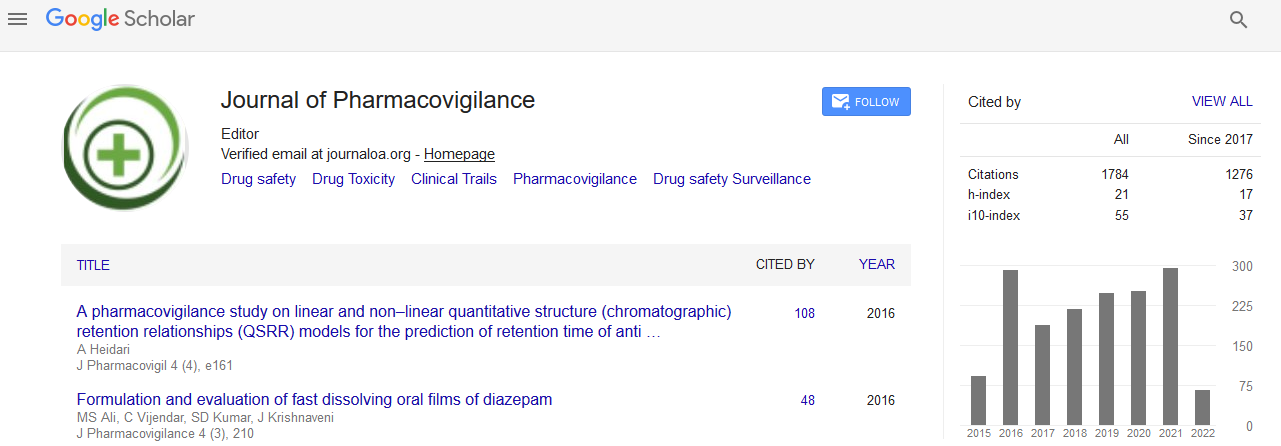Indexed In
- Open J Gate
- JournalTOCs
- The Global Impact Factor (GIF)
- RefSeek
- Hamdard University
- EBSCO A-Z
- OCLC- WorldCat
- Publons
- Euro Pub
- Google Scholar
Useful Links
Share This Page
Journal Flyer

Open Access Journals
- Agri and Aquaculture
- Biochemistry
- Bioinformatics & Systems Biology
- Business & Management
- Chemistry
- Clinical Sciences
- Engineering
- Food & Nutrition
- General Science
- Genetics & Molecular Biology
- Immunology & Microbiology
- Medical Sciences
- Neuroscience & Psychology
- Nursing & Health Care
- Pharmaceutical Sciences
Abstract
Prescriptions of Proton-Pump Inhibitors Non-Compliant with Recommendations
Bosshard T, Perez J, Pereira B, Beytout J, Dubray C, Sautou V and Lesens O
Context: In 2013, reimbursements for Proton-Pump Inhibitors (PPIs) amounted to nearly 530 million euros in France. PPI usage was subject to official recommendations in France in 2007 and 2009. Six years later, however, they are being prescribed primarily for off-label uses. This study sought to further light the prevalence of noncompliant PPI prescriptions at our institution.
Patients and methods: Transversal, descriptive, observational 1-day study including all patients receiving at least one PPI, in all conventional hospitalization and intensive care wards at a university hospital centre. The study excluded day- and week-stay hospitalization wards, the emergency department, as well as the short-term hospitalization and care ward. Besides demographic data, comorbidity was assessed based on the Charlson index. Medications that could potentially interact with PPIs were recorded.
Results: In total, 26 wards participated and 519 patients were assessed, 198 of which (38%), aged 67 ± 13 years on average, were receiving a PPI treatment, were including 113 men (57%). The average Charlson score was 1.7 ± 2. Amongst these 198 patients, 50 (25%; IC95%: [19-32%]) were taking PPIs in compliance with official recommendations for best clinical practice, and 126 (63%) were additionally undergoing at least one treatment known to cause drug interactions with PPIs. For all included wards, expenditures for PPIs amounted to 31.57 Euros for the study day.
Conclusion: Over one out of three hospitalized patients (38%) were receiving a PPI (23% had a PPI at arrival). Whilst over half of prescriptions exhibited potential drug interactions, only 25% of them complied with good clinical practice recommendations. The significant number of such prescriptions may be explained by their low cost, the image of good tolerance they enjoy, a lack of information regarding side-effects and drug interactions, fear of ceasing PPI administration with ensuing peptic ulcers, as well as unwillingness to question a prescription lacking proper scientific basis. Prescribers must, therefore, be better informed.


